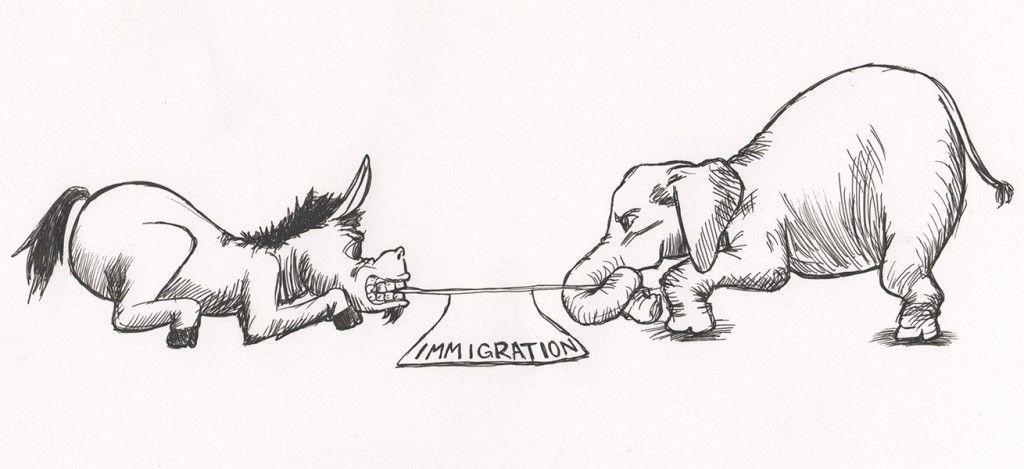On Nov. 20, President Barack Obama announced an executive action that would grant temporary protection to immigrants living in the country without legal permission.
Immediately, backlash rose from those who opposed Obama’s order, opposition that is still decorating headlines across the country.
The loudest voices are those who lean far to the right, the ones calling for Obama’s head. Texas Governor-to-be Greg Abbott said he plans to sue Obama, and U.S. Senator Ted Cruz has threatened to block Obama’s administration by other means such as stopping any appointments Obama makes for executive or judicial offices. It should be noted that he said this step will be taken because Obama granted amnesty, which is not true. Immigrants here without legal permission have not received any sort of legal status.
Whether Cruz will be successful or not, right now the arguments are very personal, for lack of a better word.
Blocking administrative nominations made by Obama does nothing for immigration reform. It’s just far right-leaning politicians yelling as loudly as they can about how they have been wronged. But at least there is an argument. It would be more concerning if there was no conversation at all.
Obama is not the first president to use executive action in terms of immigration policy. Dating back to Herbert Hoover in the 20s, presidents have used executive action to address shortfalls in political policy regarding immigration.
In 1986, Congress passed a bill called the Immigration Reform and Control Act. One of the main provisions of the bill was to grant green cards to a large group of people who at the time did not have immigration status. However, the bill failed to include families of those who qualified for green cards, including children. To stop deportation that would separate these families, President Ronald Reagan used executive power to defer deportation. Congress did nothing in terms of the bill, so later presidents like both Bushes and Clinton also had to use executive power to revamp immigration policies.
Meanwhile, Congress didn’t really have a reaction, either positive or negative to these executive orders — until now. In 2014, Congress is in an uproar over the newest in a line of executive orders. Why now and not in years past? Maybe it’s the right mix of people at the right time. Maybe the political atmosphere this cycle has stirred up the perfect storm. Whatever the reason, there is potential for real results to come out of this latest executive order, once the loudest opposition settles down.
In the middle ground, Congress could work together to pass a bill about immigration policy, something that would satisfy a majority of Congress, which starting in January will be in a Republican majority. Congress cannot repeal an executive order unless it is found to go against the law, and right now all signs point to Obama’s executive order being perfectly within his legal limits.
Political discourse is extremely important — without it, nothing could be accomplished. Right now there is no discussion, there are just angry words, but the fire of anger will die down. When it does, hopefully both sides can sit down, discuss what the forward-thinking terms of immigration reform should be, and finally, finally come to a compromised decision.
Opinion: Backlash to President Obama’s executive order could lead to real results
November 30, 2014
0
Donate to The Battalion
$2790
$5000
Contributed
Our Goal
Your donation will support the student journalists of Texas A&M University - College Station. Your contribution will allow us to purchase equipment and cover our annual website hosting costs, in addition to paying freelance staffers for their work, travel costs for coverage and more!










